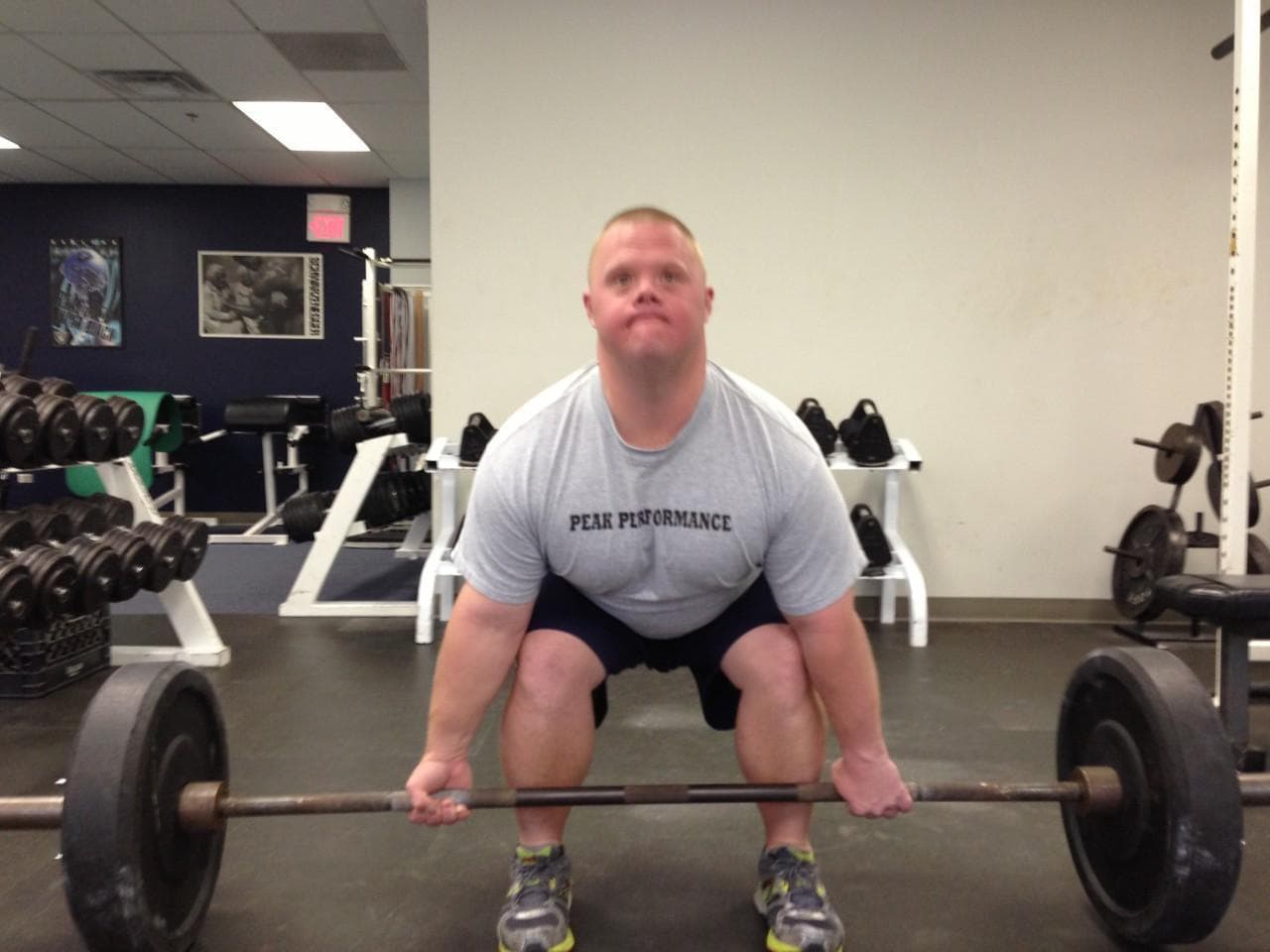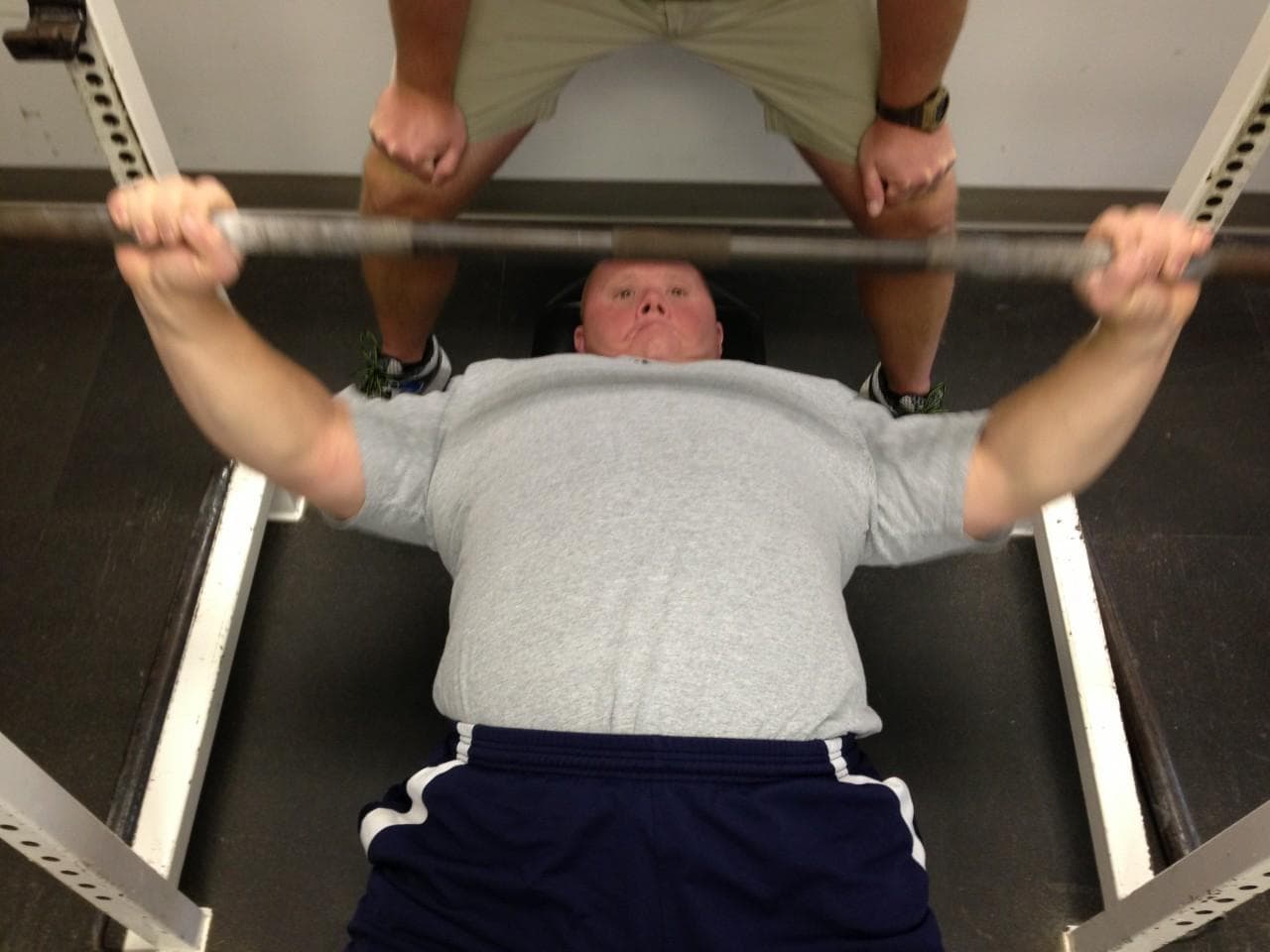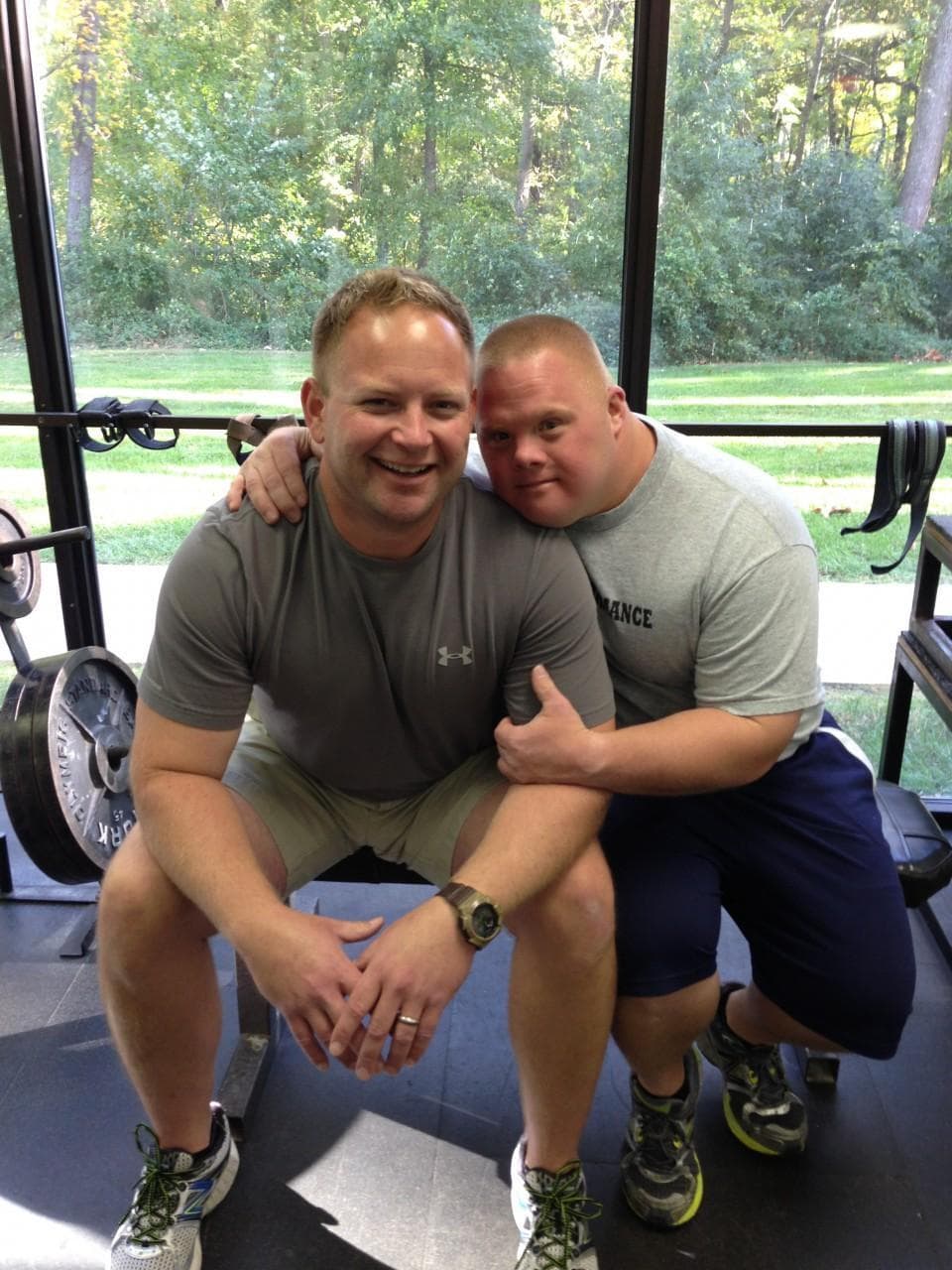Advertisement
Powerlifter Not Daunted By Down Syndrome
Resume“I always give 110 percent effort,” is one oft-heard sports cliché. Putting aside the mathematical difficulty inherent in that statement, what it really means is that an athlete is giving more than anyone thought possible.
In November of 2013, reporter Christine Laskowski met with powerlifter Jon Stoklosa, a 32-year-old born with Down syndrome, who was placing high in regular powerlifting meets and could bench press 400 lbs. She paid a visit to Jon’s home state of Delaware to uncover the secret of his success.
This story, which originally aired on Nov. 9, 2013, is being re-shared this week as part of Only A Game's Cliché Show.
It was 9 a.m. when Jon Stoklosa arrived at the gym. He had already put in a two-hour shift at the local supermarket. If he was tired, he didn't show it. Jon was ready to train.
“I wanna focus bench press, deadlift and squat,” he said. “I’m a listen to coach, Brandon [Mc]Govern. Work hard, focus.”
It was a max-effort bench day, which means that Jon started with an empty bar. His trainer, Brandon McGovern, increased the weight in 40-pound increments, bringing Jon to his limit of 400 lbs. No problem.
“We’re always going to try and hit maximum loads,” McGovern said. “Jon’s ultimate goal is to move as much weight as possible [at] one time. Basically we’re at a point now with a meet four weeks away that Jon needs to be up in his 90th percentile and above.”

Things are going really well for Jon. He’s competing in regular competitions — not against other special-needs athletes — and consistently coming in around 3rd place. Hank Stoklosa, Jon's dad, told me how Jon, the youngest of three boys, discovered powerlifting.
“He was lifting with his brothers down in the basement. They were doing burnouts, curl burnouts, ya know, until your arms fall off,” Hank said. “And then Jon realized that he had a lot of strength. [When] he was 16 he opened with a 225 at the Special Olympics. And then what happened was, I think he got a lot of attention for powerlifting. And so that’s what he rolled into, and that’s where it really came out that he said, ‘Oh, that’s what I’m going to do. I’m going to be a lifter.’”
But with a special-needs child, where the instinct to coddle and protect is often stronger, the Stoklosas resolved to let Jon try all kinds of things, just like their other boys.
“We always put him in positions where he could fail,”Hank said. “And somebody asked me, ‘Why do you do that?’ and I said, ‘So he can grow.’”
One of those times was when Jon competed on the Newark High School wrestling team. His record: 1-61. But Hank says, by putting Jon out there, even though he lost a lot of matches, Jon won a lot of something else: respect.
“When he went into school, no one tipped his tray,” Hank recalled. “If he wanted to sit at this table, nobody gave him any trouble ‘cause he had 15 brothers out there. And that made all the difference in high school.”

When Jon was born, his parents never imagined he would be where he is today.
“When they’re born with a disability — and I don’t think it necessarily has to be Down syndrome — it’s funny how your mind goes from this tiny little infant in your hands — and I remember feeling like this: we went all the way to when he was old, like, ‘Oh my god, what’s going to happen with him? Who’s going to take care of him? Is he ever going to be able to work?'" Jon's mom, Liz, said. "We were way, way in the future. We weren't even thinking about taking care of this baby.”
Down syndrome is a genetic condition and occurs when someone is born with an extra full or partial copy of chromosome 21. The additional genetic material affects development, both cognitive and physical, resulting in easily recognizable traits, like smaller stature and an upward slant to the eyes. But others are less apparent, like low-muscle tone, cardiovascular issues and something known as atlantoaxial instability.
To learn more about the physical limitations Down’s athletes face, I paid a visit to Midtown Manhattan, to the office of Eveline Erni, the owner and clinical director of Pivotal Physical Therapy.
Erni's a physical therapist with a son who has Down syndrome. And while Eveline has never met or worked with Jon, she knows how much harder certain movements or training practices can be simply because their bodies are different. For instance, core and abdominal strength are much tougher for those to build with Down syndrome.
“So oftentimes when you see children with Down syndrome trying to get into a vertical position, they have difficulties with front and back balancing and coordinating,” Erni said. “The muscles of the extremities, you know, the biceps, the triceps, and then the quads and the hamstrings and the gluts, they are perfectly, perfectly ready to be trained and strengthened. What’s going to be hard is ... to stabilize it to the torso.”
And because those with Down syndrome have looser ligaments, atlantoaxial instability is laxity in the place you need it the most: where the spinal column meets the base of the skull.

“If that ligament doesn't hold, then you can get compression of the spinal cord. If fully severed you die,” Erni said. “So what is working in his favor is the relatively shorter limbs. So, you can create a lot more power, with the muscle you have, with shorter limbs.”
Back in Delaware, as practice is winding down, the loving, forward-thinking powerlifter gives me some insights into what his future holds.
“I’m happiest ... I’m a pro-wrestler,” said Jon.
That’s right. Jon’s already performed some in the local semi-pro wrestling circuit. And in case you’re wondering, Jon’s got a wrestling name. He came up with it himself.
“Um, let me think. Mr. Hardcore,” he said.
But I notice Jon lights up the most when he talks about his high school sweetheart, Katie, who also has Down syndrome. Jon, then lets me in on another major life decision.
“Me and Katie getting married. Me and my Katie.”
“Oh, wow,” I replied. “Is this a new announcement?”
“Yes, it is!” Hank said.
“I love her,” Jon said. “She mine.”
This segment aired on May 9, 2015.